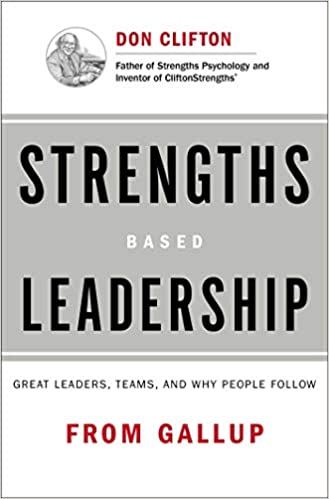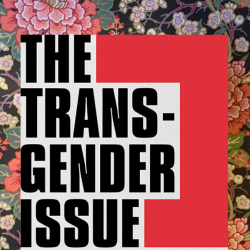Jacinda Ardern’s departure as Prime Minister was as unexpected as her landing the leadership job in 2017. She wasn’t seemed to be willing to lead then and she mustn’t have to leave now. However, Ardern was shaped by New Zealand’s culture which sees desperate humility as a virtue rather than a weakness. She knew that nothing was God-given to her and no position she may hold was her birthright. For people that hold on to this level of humility, it is not natural to be leaders and thus should not be their destiny to keep on with the job. This explains Ardern’s kindness and compassion as Prime Minister, symbolized by her handling of the Christchurch terrorist attack, and her sudden resignation.
Humility is a quality rarely seen in any leader, let alone political movers and shakers. Think about Winston Churchill or Donald Trump, characters as far away from each other as possible, but both were certain that it was only natural for them to succeed. Not Ardern. And Ardern’s kind of humility is what is needed from leaders of this century — not Trump’s vigilance.
In 2014, as Ardern was visiting a flat shared by four university students in her constituency — off the limelight of cameras — she was asked to stand as leader. The young Kiwis, not interest in politics, were claiming that a generational change was needed for them to get involved. Ardern did not give diplomatic answers that left the door open. She made clear that she wasn’t interested. “I’ve seen how hard it is to raise a family in that role,” Ardern told the students. “And that’s what I want to do.”
Ardern’s rise to positions of power was facilitated by her personal popularity and the Labour Party’s unpopularity as an organization, suffering one of its greatest defeats in history in 2014. The crash led to the departure of almost all leading figures and pushed Ardern to become Deputy Leader. And the Leader’s incapability to get Labour going resulted in him leaving the job to his Deputy. She pledged to lead with compassion, kindness, and empathy from day one.
These values were in harmony with what should be expected from leaders now
According to Stanford University’s Longevity Center, the world is going through one of the most major generational changes of human history. Children born in the US today are expected to live as long as 100 years — and work for more than 60 years before retiring. This means that the coming generation will work 20 years more than their parents and, financially, leaving work will be much more costly.
How can it be surprising for them to expect more from the organizations they work for and from the leaders that shape culture? Thus, it is by no means unreasonable for new graduates to decide on where they would like to build their future not only based on financial returns but on how valued they feel. Key to productivity is not comprehensive spreadsheets in this ecosystem. It is empathy.
Studies have shown the positive correlation between empathy and effective leadership
In 1954, Bell and his colleagues reported that people saw leadership skills in figures that can relate to their needs. In 2014, a group of researchers showed that among extremely talented students, those with the ability to understand others were most likely to lead them.
Some seem to think that discipline in an organization and empathy in its leadership are mutually exclusive, that empathy incentivizes laziness. This is based on an assumption that an emphatic leader is incapable of making herself heard. Far from it.
When Ardern held her first press conference as the leader of her party, she shared the stage with leading Labour MPs. One of them was a guy called Stuart Nash. He was religiously against a change in leadership and wasn’t ashamed to talk publicly about it. A reporter addressed a question directly to him and asked where he stood on the matter now as a new leader was just elected.
Before Nash could make it to the microphone, Ardern took on the reporter and said that “Stuart had acknowledged to me that he was wrong“. She made it clear who the boss was and with a single showing of authority, Ardern showed that the divided Labour Party had to unify behind her. Ardern stood as a leader of compassion, kindness and hope, but she never let anyone boss her around. And unified, they fought the election. Unified, they won.
Similarly, when Muslims were killed by an extremist in Christchurch in March 2019…
Ardern showed empathy with the community by wearing a headscarf when commemorating the dead and let her tears run while embracing the grieving families. “Her tears were real,” they said years later. And the most powerful proof of that reality was Ardern’s swift ban on assault weapons. Her empathy was followed by effective action — they were not mutually exclusive; they were re-enforcing.
A military-like discipline and an orthodox hierarchy fails to deliver great results all the time. It’s not the 19th century anymore — most of the workers are not paid to repeat tasks that don’t require any skills. They are expected to contribute to the solutions of complex questions — questions that cannot be solved by a single brain, a single body, and an iron fist authority.

Series of Gallup studies that turned into a book, Strength Based Leadership, have shown three qualities that made strong leaders. First was the leader’s ability to understand and focus on her employees’ strengths — people worked eight times harder when they thought that they were using their right skills for the job. Secondly, it was the leader’s capability to build and expand great teams that could work in harmony. But the third personality trait was a prerequisite for the first two: Strong leaders had to be empathic. They needed empathy to understand the strengths and needs of their employees and to manage their teams because people followed leaders, worked productively, and stood at their organizations when they felt understood.
After 6 years in power, nobody came to describe Ardern’s leadership style as “not understanding” but she was never called “weak” either. That soft spot, where leading and understanding meets, where who the boss is clear but no one in the organization are seen as peasants — that is where effective leadership is found. As in all matters requiring a great sense of balance, leaders with these qualities are hard to be found. No wonder why the Prime Minister of one of the smallest nations became a figure bigger than her country.
Featured image: Jacinda Ardern / flickr































